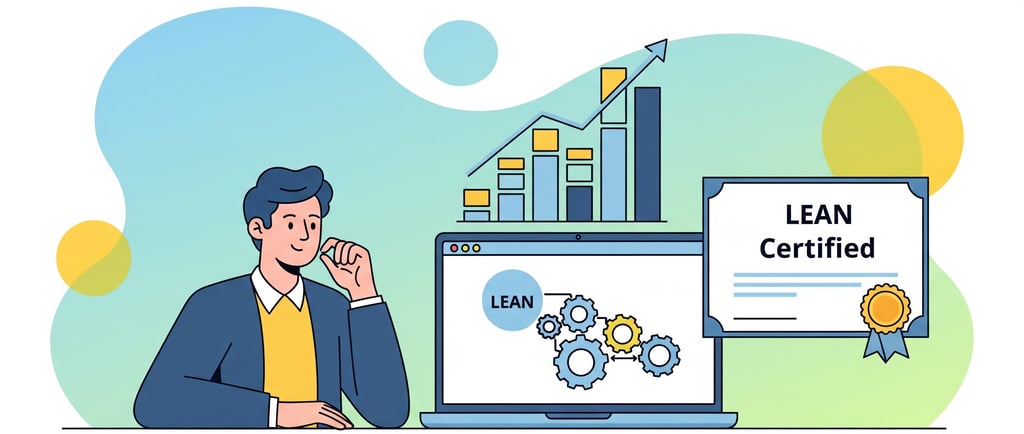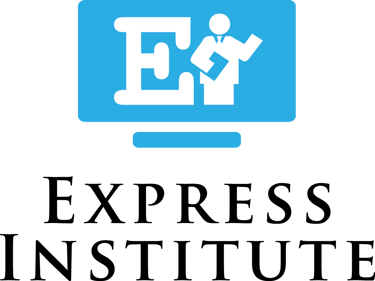LEAN Principles Course: A Framework for Universal Efficiency
8/26/20253 min read


LEAN Principles Course: A Framework for Universal Efficiency
By Vitaly Michka, MBA
Overview of LEAN: Eliminating Waste and Increasing Value
LEAN, which began with the Toyota Production System in the 1950s, is a philosophy that emphasizes giving greater value to customers with fewer resources. It is not a rigid set of laws but rather a concept of continuous development. The five main principles are:
1. Defining Value: What is the buyer willing to pay for?
2. Map the Value Stream: Identify each phase of the process and eliminate non-value-adding activities (waste).
3. Create Flow: Ensure that work runs easily and consistently.
4. Establish Pull: Produce only what is needed at the time, according to demand.
5. Pursuit of Perfection: Continuously enhance procedures.
LEAN identifies eight types of waste (muda): overproduction, waiting, unnecessary transportation, overprocessing, excess inventory, excessive motion, defects, and underutilized innovation. Addressing these difficulties enables firms to run more efficiently, hence the phrase.
In our LEAN course, we demonstrate these concepts using real-world scenarios, tools such as value stream mapping, and Kaizen (continuous improvement) methodologies. It's designed for both beginners and experts, with a focus on practical application rather than theory.
Practical Applications: From Industry to Personal Life.
LEAN's adaptability is its biggest asset. While it originated in manufacturing, where Toyota drastically reduced production time and costs, it is now utilized in a wide range of industries. at healthcare, LEAN increases patient flow, reducing wait times by 50% at some facilities. Service industries, such as banks, use it to improve loan processing efficiency.
In software development, LEAN approaches complement Agile by reducing errors through gradual improvements. Construction companies utilize LEAN to reduce material waste and project delays. Even a knowledge-based job has benefits: Law firms create case procedures to minimize recurring evaluations.
Surprisingly, LEAN applies to personal life. Consider implementing value stream mapping in your morning routine. Identify waste, such as unnecessary steps in the breakfast preparation process, and then streamline it to gain more sleep or family time. To reduce food waste while shopping at the store, use pull tactics. Professionals argue that viewing daily duties as processes to optimize leads to better time management and less stress.
To demonstrate the practical use of LEAN, we provide exercises such as mapping your own workflow and analyzing a home project. Case studies, such as Nike's use of LEAN for faster product releases and Intel's waste reduction in chip manufacturing, demonstrate industrial success.
For job seekers, LEAN knowledge leads to opportunities in operations, supply chain, and consulting. In existing activities, it enables you to provide efficiency, such as modifying a team's reporting routine to save hours per week.
Career and Personal Development Benefits: A Growth Driver.
LEAN training offers substantial advantages. Professionally, it enhances problem-solving abilities, which leads to promotions and higher compensation—Green Belt-certified persons usually receive a 10-20% pay raise. It fosters data-driven decision-making, resulting in enhanced project outcomes and increased client satisfaction.
Personally, LEAN encourages resilience and efficiency. Eliminating waste in habits helps you to devote more time to your passions, enhance your health through streamlined routines, and strengthen your relationships through targeted interactions. It is industry-agnostic, so your skills are transferable and future-ready.
Our Certificate of Completion validates your experience, enhancing your resume and LinkedIn profile. Many alumni report immediate benefits, such as one who simplified their office's inventory system, resulting in a 15% cost reduction.
Why Express Institute? Convenience meets practicality.
Express Institute prioritizes your lifestyle. Both courses are entirely online, featuring video lectures, quizzes, and forums that are accessible on both PC and mobile devices. Self-paced learning offers flexibility—complete the 20-hour ISO course in one weekend for quick wins or extend it for mastery. The LEAN course is similarly structured, with downloadable templates for quick use.
We prioritize practicality: 70% of the content is application-based, featuring tools that can be implemented immediately. There is no fluff, only proven knowledge based on standards like ISO and Toyota's legacy.
Our courses are both reasonable and accessible, with lifetime updates to keep your skills current.
Conclusion: Start investing in your future today.
In a more efficient and quality-conscious culture, Express Institute's ISO 9001 Inspector and LEAN courses offer practical paths to success. These certifications have a tremendous influence, whether they are used to advance the industry, enhance services, or improve people's lives.
Are you prepared to transform? Enroll now at the Express Institute website. Your Certificate of Completion awaits, as does a brighter, more efficient future.
